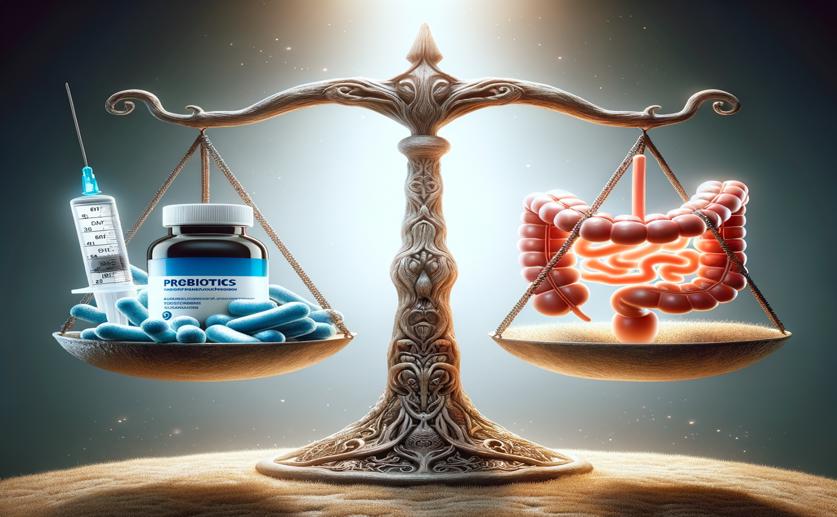
Probiotics Improve Insulin Sensitivity and Health by Balancing Gut Bacteria
Jenn Hoskins
3rd July, 2024

Image Source: Natural Science News, 2024
Key Findings
- The study by Sichuan Agricultural University found that supplementing sows with the probiotic Lactobacillus rhamnosus GG (LGG) during late gestation and lactation improved insulin sensitivity
- LGG supplementation led to increased milk production and higher survival rates among piglets
- The probiotic altered the gut microbiota composition in sows, which was linked to improved metabolic health and reduced inflammation
References
Main Study
1) Probiotic Lactobacillus rhamnosus GG improves insulin sensitivity and offspring survival via modulation of gut microbiota and serum metabolite in a sow model
Published 2nd July, 2024
https://doi.org/10.1186/s40104-024-01046-z
Related Studies
2) Metabolic Syndrome During Perinatal Period in Sows and the Link With Gut Microbiota and Metabolites.
3) Reduced feed intake of lactating primiparous sows is associated with increased insulin resistance during the peripartum period and is not modified through supplementation with dietary tryptophan.
4) Sows with high milk production had both a high feed intake and high body mobilization.



 14th June, 2024 | Jenn Hoskins
14th June, 2024 | Jenn Hoskins